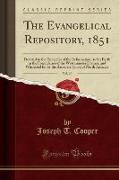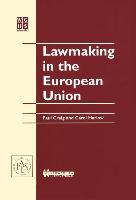- Start
- The Evangelical Repository, 1851, Vol. 10
The Evangelical Repository, 1851, Vol. 10
Angebote / Angebote:
Excerpt from The Evangelical Repository, 1851, Vol. 10: Devoted to the Principles of the Reformation, as Set Forth in the Formularies of the Westminister Divines, and Witnessed for by the Associate Synod of North America
It is designed to take a practical view of the text, in answering the following questions: let. Does the command in the text, and Others like it in the word of God, require us to be subject to the civil govern ment set up in our country, and to 0b? Its magistrates? 2d. What is that subjection and obedience require if they are due from us? 3d. Does this command, and others like it, require us to obey the late law of Congress concerning fugitives from slavery?
The first question proposed is, Does this command require us to be subject to the civil government set up in our community? I answer in the a¿irmative. 1st. Because this government has been legally formed. It is not a usurpation. What is essential to valid civil autho rity is, that it have the appointment, or at least the consent, of the people. The light of nature teaches, that any and every society has a right to fix its own form of government, and choose its own o¿icers. They may not, indeed, cast off Divine authority, nor hurt the natural rights of any of their fellow-men. But, under these limitations, they have ¿ight to act according to their own judgment and choice - as even nature itself teaches. The Scriptures, also, in various ways con firm this doctrine. When the Israelites chose to alter their civil go vernment, and have a king, although God reproved them for their folly and even sin, yet Samuel was directed to hearken to them. When Moses was directed to organize the civil government more perfectly, by giving them a greater number of rulers, Ex. Xviii. 21, the way in which he did it, was by calling on the people to choose their own rulers. Take ye wise men and understanding, and known among your tribes, and I will make them rulers over you. Deut. I. 13. When God himself designated Saul first, and afterwards David, to be king, they were not recognised as having actual authority, until by the appointment of the people they were respectively invested with it. And so it is in the church. When Paul and Barnabas organized the church of Asia Minor, they did it by the action of the people them selves: And when they had ordained (or, as the word is, bad elected, ) them elders in every church, and had prayed with fasting, they com mended them to the Lord. Acts xiv. 23. By these examples, it su¿iciently appears that the people have the right to establish civil government, and choose. Its officers, and when they do so, their ap pointment is valid, and we are required to be sub'ect in things lawful. Submit yourselves to every ordinance of man. Now, the govern ment in our community was set up by the people, and no doubt still has the consent of the great majority, therefore, we should be subject, and obey its magistrates in things lawful.
About the Publisher
Forgotten Books publishes hundreds of thousands of rare and classic books. Find more at www.forgottenbooks.com
This book is a reproduction of an important historical work. Forgotten Books uses state-of-the-art technology to digitally reconstruct the work, preserving the original format whilst repairing imperfections present in the aged copy. In rare cases, an imperfection in the original, such as a blemish or missing page, may be replicated in our edition. We do, however, repair the vast majority of imperfections successfully, any imperfections that remain are intentionally left to preserve the state of such historical works.
Folgt in ca. 5 Arbeitstagen


